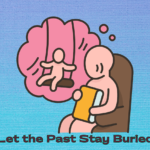If you own a podcast, you owe it to yourself and your business partners to protect your intellectual property online.
Even if you’re not a podcaster, you probably still have some intellectual property to protect online – even if it’s just your posts on social media.
Podcasting has grown exponentially in recent years and will continue to grow for the foreseeable future. Podcasts range from comedy shows and news programs to talk shows about various topics relevant to today’s society.
Every day people are creating new podcasts or expanding current podcasts into commercial enterprises. These podcasters need to understand how to protect their intellectual property online.
This article will discuss the most common ways that intellectual property can be compromised online and avoid them. It will also discuss how to protect your intellectual property online if you are a podcaster.
What is Intellectual Property?
Intellectual property is defined as any intangible asset created by human beings.
Some examples of intellectual property may include:
- Trademarks, logos, and brand names
- Commercial names and slogans
- Copyrights for literary works (including music), artwork, films, television shows, podcasts, video games, etc.
- Patents for inventions and devices
It is essential to protect intellectual property because it can provide economic value. The protection of intellectual property also encourages people to create new works and inventions by giving them an incentive (ownership) for their creations.
Types of Intellectual Property
There are several different types of intellectual property. For your purposes, the most important type is your podcast’s brand name and logo. However, you should still know what qualifies as intellectual property and how it all relates to your podcast.
Trademarks: A trademark is a word or phrase that distinguishes a business from its competitors.
For example, Nike is a trademark for athletic shoes, and Microsoft is for computer software.
Your podcast’s brand name and logo are both trademarks because they distinguish your podcast from other podcasts.
Copyrights: A copyright is a form of protection for original works such as songs, artwork, videos, and broadcasts.
For example, the song “We Will Rock You” by Queen was released in 1977, and it still enjoys copyright protection today. Copyright laws vary from country to country, so you should always be aware of any copyrights that pertain to your business.
Patents: These are defined as a form of legal protection for new inventions. Patents are costly to apply for, and you don’t need to have one to run your podcast business.
Intellectual property can also be used to protect how you operate your business. Email, customer lists, social media accounts, and podcasts are all assets that fall under intellectual property.
It is crucial to protect your online assets to ensure a healthy bottom line for your podcast enterprise. Even if you don’t have a large following yet, it’s good to establish these policies from the start so that you can avoid disputes in the future.
Why is Intellectual Property Important?
Intellectual property is protected for a reason. The internet has made it easier than ever to share information with people around the world; however, this also opens the door to widespread theft of intellectual property.
Protected intellectual property promotes innovation and can provide economic benefit to individuals or businesses who create or license them.
Intellectual property can also include trade secrets, which are confidential business ideas and concepts. These must be protected at all costs to prevent others from stealing your ideas.
Online Intellectual Property Theft
The internet may be the single most significant driver behind the popularity of intellectual property theft. Internet users worldwide use peer-to-peer sharing services to share illegally copied movies, music, and other copyrighted material.
Intellectual property theft is a massive problem on the internet, and it’s essential to take steps to protect your own from being stolen as well. This is particularly true for those who have monetized their podcast with an advertising or sponsorship model.
Some of the ways people may use peer-to-peer sharing services to steal your intellectual property include:
- Download your copyrighted podcast episodes, share them online for free, and collect advertising revenue without paying you.
- Uploading your podcast episodes onto another service or website and claiming the content as their own.
- Claiming they are the original content provider by using your podcast’s brand name, logo, or even host’s image.
Accidental and Unintentional Violations
Sometimes people will mistake your podcast for something else because of a similar name or shared artwork. We’ve all heard of cases where an artist sued another musician over copyright infringement, but this could also happen to you.
For example, if your podcast is named “Podcast Hangouts,” it could be mistaken for the other similarly titled product called “Hangouts On Air.”
The risk of people accidentally using your intellectual property without proper authorization can increase even further if they’re doing something illegal in the first place.
If someone is illegally streaming copyrighted movies and music, then it can be challenging to prove that your product was not involved in any way. The same thing goes for podcasters who get into disputes over using other people’s images or artwork.
Avoiding such disagreements before they happen is a good strategy, especially if you’re working with other businesses or people who have a significant online presence.
How can Podcasters Protect their Intellectual Property?
Intellectual property can be protected by filing for copyrights and trademarks. However, there is no way to protect your business’s trade secrets or customer lists from theft unless you invest in some kind of intellectual property protection software.
You should also be aware that the moment you start using your podcast’s name, logo, or other information in any marketing materials, this will constitute public use. This means it can no longer be considered a trade secret and may not be protected by law.
You will want to file copyrights for the podcast itself and any promotional materials you use in your marketing efforts.
For example, you would want to register a copyright for your logo, website header images, and website banner images to prevent them from being used in a way where they don’t give proper credit. Additionally, you will want to protect all of the photos you use on your website from being used in any other context without your permission.
Trademarks are also important to protect because they place the public on notice of the intellectual property owner. You’ll want to file for a trademark if you use specific names, phrases, or slogans in connection with your business.
For example, the phrase “podcasting made easy” could be considered a part of your original branding if you use it frequently in your marketing efforts. This would give you exclusive rights to that slogan and prevent others from using it without permission or giving proper credit to you for its origin.
Protecting your intellectual property is extremely important if you plan on monetizing your podcast. It’s also essential if you want to own any domain names that might be similar to your product or service name.
With the proper intellectual property protection, you can avoid disputes with others using your business’s name and logo.
There are plenty of resources online that can help you learn how to protect your intellectual property. You should also consider hiring a lawyer who has experience in this area if you’re worried about people stealing your podcast’s information.
What Should You Do If Your Intellectual Property Is Stolen?
If you suspect your intellectual property has been stolen, then there are some steps you can take to resolve the situation.
To start, make sure it’s actually happening in the first place. You shouldn’t jump to conclusions if someone else’s website uses a similar phrase or slogan. They may be using it in an honest attempt at following your branding strategies.
If you’re confident that your intellectual property rights are being violated, then you will want to send a cease and desist letter as soon as possible. This gives the person or company you’re accusing of stealing a chance to stop doing so without getting authorities involved.
Once they agree to stop using your intellectual property, you’ll want them to send you a signed statement saying they understand why it was wrong for them to steal your information. This is a crucial step because not having this documentation could prevent you from taking legal action in the future.
If the party is unresponsive or uncooperative, you will want to talk to an attorney about filing a lawsuit against them. Intellectual property protection lawsuits can be quite expensive and time-consuming, so you will want to make sure you have a strong case before trying this approach.
If your intellectual property was stolen through contributory infringement, then you need to contact an attorney as soon as possible. This type of claim is often associated with peer-to-peer sharing services, so you could lose a ton of revenue if the lawsuit gets decided in favor of the defendant.
It’s imperative to take action against contributory infringement lawsuits because there is no statute of limitations associated with them. This means you can always recover damages even after many years have passed since the incident occurred.
There are many benefits to protecting your intellectual property rights. Not only does it help you prevent losses, but it also gives you the power to pursue legal action against people who violate your copyrights.
If someone steals your podcast’s information or uses an unfair business practice related to your trademark, you can benefit by filing a lawsuit against them. You might need to hire an attorney to take this step, but it can prevent future disputes and help you increase your brand’s reputation.
Do What’s Best For Your Podcast
Protecting your intellectual property is relatively easy if you take the proper steps. It isn’t always cheap, but it’s usually worth it when you consider all of the benefits that come with strong intellectual property protection.
If you find yourself in a situation where someone is stealing from you or infringing on your copyrights, then you should strongly consider filing a lawsuit against them.
You also have the option of contacting an intellectual property lawyer if you aren’t sure what your options are or don’t want to handle them on your own. The most important thing is that you protect yourself now so you can avoid problems in the future.






